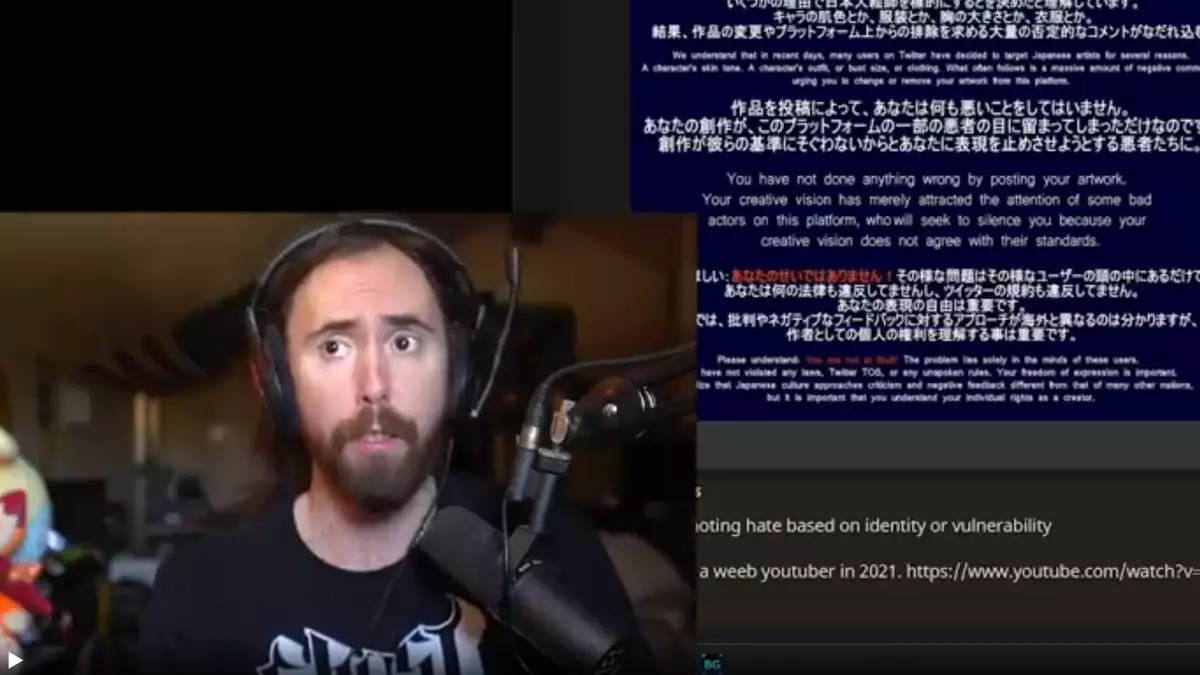In the evolving landscape of online content creation, the responsibility that comes with a platform can never be understated. Zack Hoyt, commonly known as Asmongold, found himself at the center of a storm following a livestream event where he made derogatory comments regarding Palestinians. His remarks, belittling a significant humanitarian crisis in Gaza—where the United Nations estimates over 42,000 lives have been lost, largely affecting women and children—conveyed a disturbing insensitivity. Hoyt’s statements reflected a deeply ingrained prejudice, showcasing not only his disdain for the affected communities but also his ignorance of the broader geopolitical issues at hand.
The implications of his words resonated widely, inviting monumental backlash not just from viewers but also from various advocacy groups who advocate against hate speech and discrimination. Such comments not only highlight deep-seated xenophobia but also bring into question the ethical responsibilities of public figures, particularly in contexts where their platforms can reach millions.
In light of Asmongold’s comments, it became evident that he crossed the line set by Twitch’s community guidelines. Twitch strives to create an inclusive environment free from hate-based rhetoric. The guidelines expressly prohibit any content that reflects intolerance or promotes discrimination against vulnerable communities. Asmongold’s tirade throws these rules into the spotlight, as he freely expressed sentiments that clearly violated these protocols.
The incident raises critical questions about Twitch’s enforcement mechanisms. While the ban of his account “zackrawrr” acknowledges a breach of community standards, one must ponder why it took public outrage for a response to be enacted. This situation uncovers a considerable flaw in how platforms like Twitch manage sensitive issues, often waiting for public outcry before taking meaningful action. They must find a balance between freedom of speech and maintaining a respectful, inclusive community.
After facing immense criticism, Asmongold issued a half-hearted apology on social media, where he referred to his earlier comments as “stupid shit” and claimed it wasn’t meant to condone violence against anyone. However, many observers found little solace in his words. The phrasing of his apology suggested an effort to mitigate the fallout rather than a genuine recognition of the harmful nature of his original statements.
The disconnect between his initial comments and his later attempt at an apology underscores a broader trend of insincere repentance often exhibited by those in influential positions. Critics rightfully argue that, given the significant impact of his statements, a mere “my bad” falls far short of the accountability expected from someone with such a massive following. Calls for more substantial accountability from influencers reveal a growing demand for public figures to be held responsible for their words, particularly when those words incite hatred or perpetuate harmful stereotypes.
As the world turns increasingly towards digital platforms for discourse and entertainment, the consequences of online speech become more pronounced. The Asmongold incident exemplifies the potency of public platforms; statements made in a moment can ripple across communities, influencing perceptions, fostering divisiveness, and inciting further prejudice. This underscores the necessity for streamers and influencers to adopt a more expansive understanding of their role in shaping public dialogue.
Moreover, this incident will likely serve as a cautionary tale for other streamers. The digital landscape is no longer a safe harbor for “off-the-cuff” remarks that perpetuate stereotypes or promote division. It is imperative that content creators recognize the weight of their words and the responsibility that comes with their influence.
The controversy surrounding Asmongold is a flashpoint in ongoing discussions about digital responsibility. It poses essential questions about how we navigate the freedom of expression while safeguarding against hate speech. Ultimately, this incident should serve not just as a critique of Asmongold’s actions but as a profound opportunity for reflection within the larger community of content creators. Moving forward, there lies a pressing need for thoughtful dialogue and genuine accountability, with the hope that such lessons can foster a more respectful and compassionate digital society.

